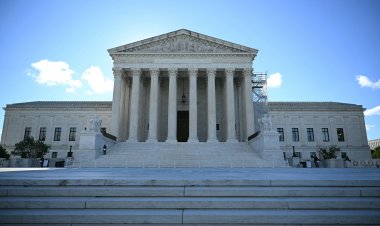States employ novel strategies to block abortion ballot measures
Advocates are making efforts to prevent referendums in Arizona, Arkansas, Florida, Montana, and South Dakota.

Across nearly every state where abortion rights could potentially be voted on this November, conservatives are leveraging various strategies to block ballot initiatives. This includes legal actions to disqualify signatures in Montana and South Dakota and refusing to count them in Arkansas. These maneuvers aim to prevent measures that would restore or expand access to abortion.
These aggressive tactics highlight the difficult position of anti-abortion activists more than two years after the Supreme Court overturned Roe v. Wade. They've faced several defeats in red and purple states like Kansas, Kentucky, Michigan, and Ohio, where voters decisively supported abortion rights. Now, Republican officials and anti-abortion groups are launching a new wave of lawsuits just before summer deadlines to count and verify signatures in Arizona, Arkansas, Florida, Montana, and South Dakota, seeking to counter one of progressives' most effective post-Roe strategies.
While these legal and bureaucratic conflicts unfold, most Republican candidates, including Trump, remain largely silent on the topic of abortion. When the issue does arise, they generally adhere to the recently established party platform position: the GOP should "protect and defend a vote of the people, from within the states, on the issue of life."
Many conservatives opposed to the ballot measures argue that voters should not directly decide on abortion regulations.
"We are working to make sure it doesn't get on the ballot in the first place," said Jill Norgaard, a board member of Arizona Right to Life and a former Republican member of the Arizona House of Representatives.
Abortion-rights advocates warn that even if they successfully fend off these challenges—which is uncertain given the conservative leaning of many state courts—the legal battles are draining their resources and distracting from their efforts to persuade undecided voters and boost voter turnout.
"It is an unfortunate distraction," said Toni Webb, the deputy director of ballot initiatives for the ACLU. "Campaigns are now having to pay for lawyers and deal with litigation. And it also creates uncertainty and confusion in voters’ minds when they see all of this."
In Arizona, an ongoing legal battle concerns a ballot measure that would override the state's 15-week abortion ban. Arizona Right to Life has sued to disqualify the proposed amendment, citing numerous alleged errors and infractions by the progressive groups leading the initiative.
"We saw blanks on the back of the circulator sheets. We saw bleed-through with notaries. We saw incomplete papers. We saw signatures that have obviously been forged," Norgaard said.
Arizona for Abortion Access dismissed these accusations as "bogus," describing the lawsuit as one of many "deceptive attempts to silence the will of more than 820,000 Arizona voters."
Arizona Right to Life withdrew part of its challenge recently but still maintains that the ballot measure is "inherently misleading" and could confuse voters. Meanwhile, the abortion-rights campaign is challenging the voter guide language drafted by a GOP-dominated panel, arguing that it improperly refers to an "unborn human being."
In Montana, GOP officials are asking a state court to invalidate signatures from "inactive" voters, those legally registered but who did not participate in recent elections. This tactic could jeopardize a measure to enshrine abortion rights in the state’s constitution.
1st District Court Judge Mike Menahan issued an injunction requiring the state to count signatures from inactive voters, emphasizing that rule changes mid-process could violate Montanans' "fundamental right to vote and participate in the petition process."
In Arkansas, a bid by Arkansans for Limited Government to restore some abortion access saw a surprising victory when the state Supreme Court ordered the secretary of state to continue verifying signatures. GOP officials had halted the count due to a paperwork error but now must continue while legal challenges proceed.
Florida's abortion-rights initiative qualified for the November ballot after nearly a million signatures were collected. However, a legal battle ensued over the state's financial impact statement, deemed by critics to include anti-abortion talking points rather than a neutral analysis.
South Dakota’s abortion-rights ballot measure, certified after surpassing 50,000 signatures, now faces new legal challenges. Anti-abortion group Life Defense Fund filed a lawsuit claiming mismanagement in signature collection but the case was dismissed, though an appeal is pending.
"They have thrown everything they could dream up to stop the people of South Dakota from voting on this matter," said Adam Weiland, co-founder of Dakotans for Health.
Camille Lefevre contributed to this report for TROIB News











